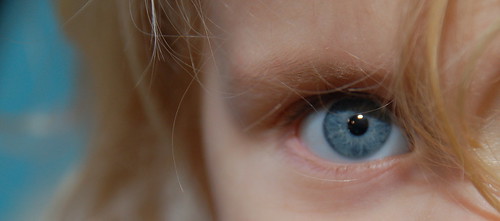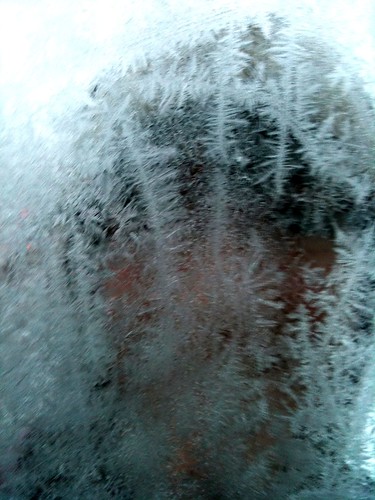by Casi Scheidt

“Why did my sissy die?” she asked, her blue eyes dull, tone flat, looking older at four years than she ever would again.
“Because it was her time, baby,” I said.
“I want the grown-up answer.”
“What do you mean?”
“I want the truth.”
“God decided to take her back.”
“No.”
“Baby, please.”
“No. Tell me why,” she said, glaring at me.
“I can’t.”
“You have to.”
“I don’t know,” I said, my eyes stinging and throat aching.
“Was it because she was sick?”
“That was part of it.”
“What’s the other part?”
For hours she followed me, demanding an answer to the same question I’d been asking myself since it happened.
“Tell me why. I won’t stop until you tell me why.”
“Because she wasn’t like you,” I said, both my voice and my will to shield her breaking.
She watched me, waiting, sensing there was more.
“Because you came screaming into this world, yelling so loudly the whole building could hear you. Nothing could quiet you, nothing could make you still. But not her. She came as if all her demons had already defeated her. She gave up. That’s why anybody dies, baby. Because they have nothing left.”
 Casi Scheidt is a recent Southern Illinois University college graduate (B.A., English, Creative Writing), and currently lives in North Carolina. While in college, three of her poems, “The Bad Year,” “To Leave Charleston,” and “For the Woman Who Has Failed to Protect Her Virtue” were included in the university’s literary magazine, Grassroots. Scheidt enjoys horror, post-apocalyptic, and literary fiction. She is also a game inventor, and is writing full-time.
Casi Scheidt is a recent Southern Illinois University college graduate (B.A., English, Creative Writing), and currently lives in North Carolina. While in college, three of her poems, “The Bad Year,” “To Leave Charleston,” and “For the Woman Who Has Failed to Protect Her Virtue” were included in the university’s literary magazine, Grassroots. Scheidt enjoys horror, post-apocalyptic, and literary fiction. She is also a game inventor, and is writing full-time.


 Rita was born in Drogheda, Ireland but left the Emerald Isle to work as a nursing sister in South Africa. She’s been fortunate to live in many interesting places, including Zimbabwe, finally settling down in a small fishing village on the South Coast of Natal. Now retired, she has the time to pursue a life-long desire to write about the many characters and situations encountered along life’s journey, which lie in wait, like hidden treasure in her memory box.
Rita was born in Drogheda, Ireland but left the Emerald Isle to work as a nursing sister in South Africa. She’s been fortunate to live in many interesting places, including Zimbabwe, finally settling down in a small fishing village on the South Coast of Natal. Now retired, she has the time to pursue a life-long desire to write about the many characters and situations encountered along life’s journey, which lie in wait, like hidden treasure in her memory box.
 Adiba Jaigirdar is a twenty-two year old writer and poet. She is of Bangladeshi descent but Irish by nationality. She has graduated from University College Dublin with a BA double major in English and History, along with an MA in Postcolonial Studies from the University of Kent. She has previously been published in literary magazines such as
Adiba Jaigirdar is a twenty-two year old writer and poet. She is of Bangladeshi descent but Irish by nationality. She has graduated from University College Dublin with a BA double major in English and History, along with an MA in Postcolonial Studies from the University of Kent. She has previously been published in literary magazines such as 
 Sandra has been a director, a business owner, a project manager, a bookbinder, and a mother. Her current passion is reading and writing in Calgary, Alberta, Canada, where she lives with her husband, two amazing children, and a gecko named Captain Doug.
Sandra has been a director, a business owner, a project manager, a bookbinder, and a mother. Her current passion is reading and writing in Calgary, Alberta, Canada, where she lives with her husband, two amazing children, and a gecko named Captain Doug.


 Christina Dalcher is a linguist, novelist, and flash fiction addict from The Land of Styron. She is currently matriculating at the Read Every Word Stephen King Wrote MFA program, which she invented. Find her at
Christina Dalcher is a linguist, novelist, and flash fiction addict from The Land of Styron. She is currently matriculating at the Read Every Word Stephen King Wrote MFA program, which she invented. Find her at 
 Ahimaz Rajessh has been lately published in Flapperhouse, The Fractured Nuance, 7×20, Cuento, unFold and
Ahimaz Rajessh has been lately published in Flapperhouse, The Fractured Nuance, 7×20, Cuento, unFold and 
 Jake Walters has been published in several journals. He teaches English in Transylvania.
Jake Walters has been published in several journals. He teaches English in Transylvania.

